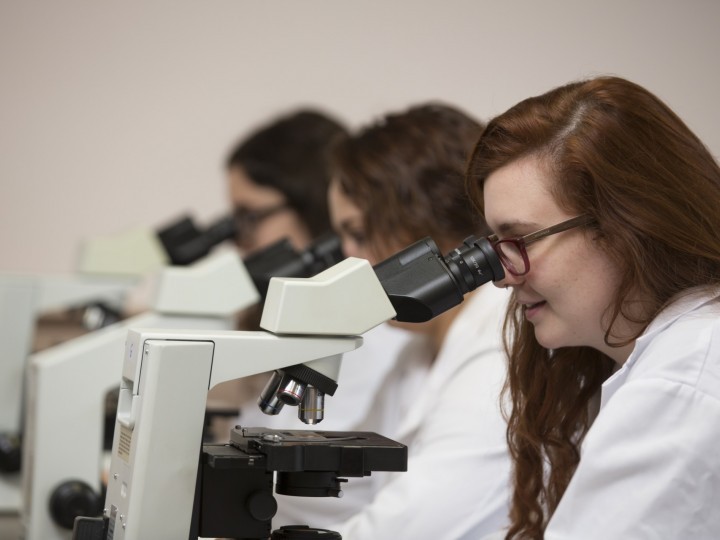
Anticipating a growing gap in the cytotechnology field, Albany College of Pharmacy and Health Sciences has launched a hybrid track of its accelerated Master of Science degree in Cytotechnology and Molecular Cytology for students and current health care professionals across the country.
“Great patient care begins with an accurate diagnosis,” said ACPHS Program Director, Jenna LeBlanc. “By obtaining a master's degree in cytotechnology and molecular cytology, students can acquire the knowledge and skills necessary to assist the cytopathology team in making specific diagnoses that aid in the development of appropriate treatment plans for patients dealing with infections, autoimmune diseases, or cancer.”
The new hybrid track takes 16 months to complete through online synchronous lectures and recorded lectures, and satellite extension site locations for the program's laboratory portions. Students learn in real-time alongside their peers at the Albany campus and have local access to the lab components through partnerships with health care providers.
Currently, ACPHS has agreements to partner with UHS Wilson Medical Center in Johnson City, New York, and Arnot Ogden Medical Center in Elmira, New York to support the laboratory/hands-on component of the program in a clinical setting under the supervision of a licensed cytotechnologist. The College expects to continue building the network of partners throughout New York State and beyond.
“UHS’ partnership with Albany College of Pharmacy and Health Sciences represents a critical step in addressing the growing gap in the cytotechnology and cytology field,” said Dr. Richard Rigotti, Sector Director of Cytology at UHS. “By collaborating on this new degree program, we are investing in the future of healthcare and empowering students with the skills and knowledge needed to make a significant impact in diagnostics medicine, we are excited to begin our inaugural training session with our current employees.”
The 58-credit program enrolls students in August with graduation the following December. Students can also apply what they are learning in the classroom and lab to a real-world environment through a broad range of clinical rotation sites and a capstone project in the final semester.
“We are excited to partner with ACPHS to come this gap in licensed cytotechnologists. This collaboration holds great promise for the future as we work together to ensure quality care and service for our patients and community. It also opens new educational opportunities for our team members, fostering their professional growth and development,” said Stephanie Tripp, MHA, MLS (ASCP), Systems Director of Laboratory Services, ArnotHealth.
“One of the oldest cytotechnology programs in the country, ACPHS’ program is renowned for its leading-edge curriculum and 100 percent pass rates on the national cytotechnologist certification exam administered by the American Society for Clinical Pathology (ASCP) Board of Certification (BOC) for over the last decade,” said Meenakshi Malik, dean of Health Sciences at ACPHS. “With the current attrition in the field, students will have extensive job opportunities as cytotechnologists upon completion of the program, and with the appropriate experience, roles as lab supervisors and cytology educators become available to them.”
For more information, visit the ACPHS Cytotechnology and Molecular Cytology program page.

